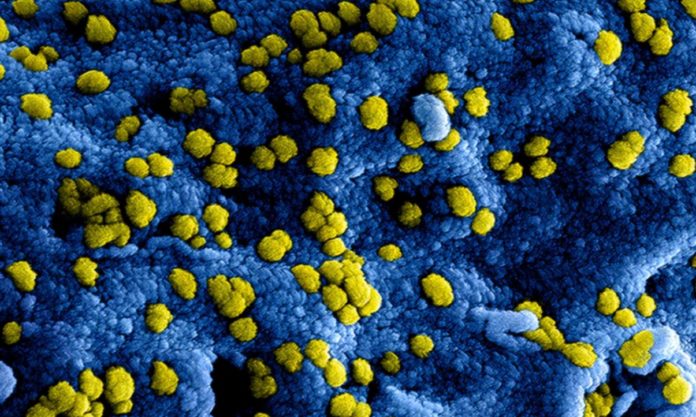Cardiologist Dr Jennifer Haythe from the Columbia University Center points out the adverse effects that coronavirus can have on the vital organs of an individual while being more specific towards cardiovascular health.
It’s been more than a year since the health rage has taken over across the length and breadth of the world. Each day unfolds a piece of new information and adds another dimension to the study of COVID-19 as a disease. What once began as a respiratory illness has now turned out to be malignant for many parts of the body.
- Does This Mean We Stopped Being Animal and Started Being Human Due to ‘Copy Paste’ Errors?
- The One Lifestyle Choice That Could Reduce Your Heart Disease Risk By More Than 22%
- Aging: This Is What Happens Inside Your Body Right After Exercise
- Immune-Boosting Drink that Mimics Fasting to Reduce Fat – Scientists ‘Were Surprised’ By New Findings
- Gun Violence in America: What They Don’t Talk About at the Debate
Since we are in the American Heart Month, health experts and doctors all over are keen on spreading awareness, information, and understanding of the effects of coronavirus specifically on the heart. According to Dr Jennifer Haythe who is a member of PEOPLE Health Squad and a Critical Care Cardiologist at Columbia University Center helped to understand the ill-effects of coronavirus on the cardiovascular system.
Myocarditis
The coronavirus is found to have significant effects on the cardiovascular health of an individual. It can cause the heart muscle to inflame resulting in a condition of Myocarditis. The condition can cause experiencing symptoms such as chest pain, unusual pulse rate, and a decreased level of heart functioning.
Arrhythmia
Arrhythmia i.e. severe abnormality of pulse rate is also been found to be a major effect of coronavirus PM cardiac health. The irregular heartbeats are seen to cause extremely lowered blood pressure or increased palpitations. Extreme conditions have led the patients to get Cardio-Pulmonary Resuscitation (CPR).
Cardiac failure
COVID-19 is proven to result in a significant decrease in heart functioning. The virus affects the cells of the heart and leads to symptoms such as breathlessness, accumulation of fluid in the lungs, and swollen feet. If the symptoms continue to persist for a longer time, it can result in cardiac failure, also known as heart failure syndrome.
Other effects
There are huge adverse effects of coronavirus on the vasculature. Its effect on the blood vessels in the brain can cause strokes. It can cause blood clots to form in the lungs. The coronavirus also affects by clotting the blood vessels in the skin, thus leading to rashes. The formation of clots in the blood vessels of the kidney can result in renal failure as well.
- Does This Mean We Stopped Being Animal and Started Being Human Due to ‘Copy Paste’ Errors?
- The One Lifestyle Choice That Could Reduce Your Heart Disease Risk By More Than 22%
- Aging: This Is What Happens Inside Your Body Right After Exercise
- Immune-Boosting Drink that Mimics Fasting to Reduce Fat – Scientists ‘Were Surprised’ By New Findings
- Gun Violence in America: What They Don’t Talk About at the Debate
Factors of vulnerability
Individuals with pre-existing cardiovascular conditions are at an increased risk of severity. Already existing chronic health conditions such as hypertension, obesity, diabetes can further add to the vulnerability. Certain alerting symptoms that people having such health conditions must look at are lightheadedness, fainting or dizziness, chest pain, and breathlessness. Dr Haythe, however, suggests that if a patient who is experiencing underlying heart conditions gets infected by a coronavirus, it just means increased risk, and must not be looked at as a death sentence.
